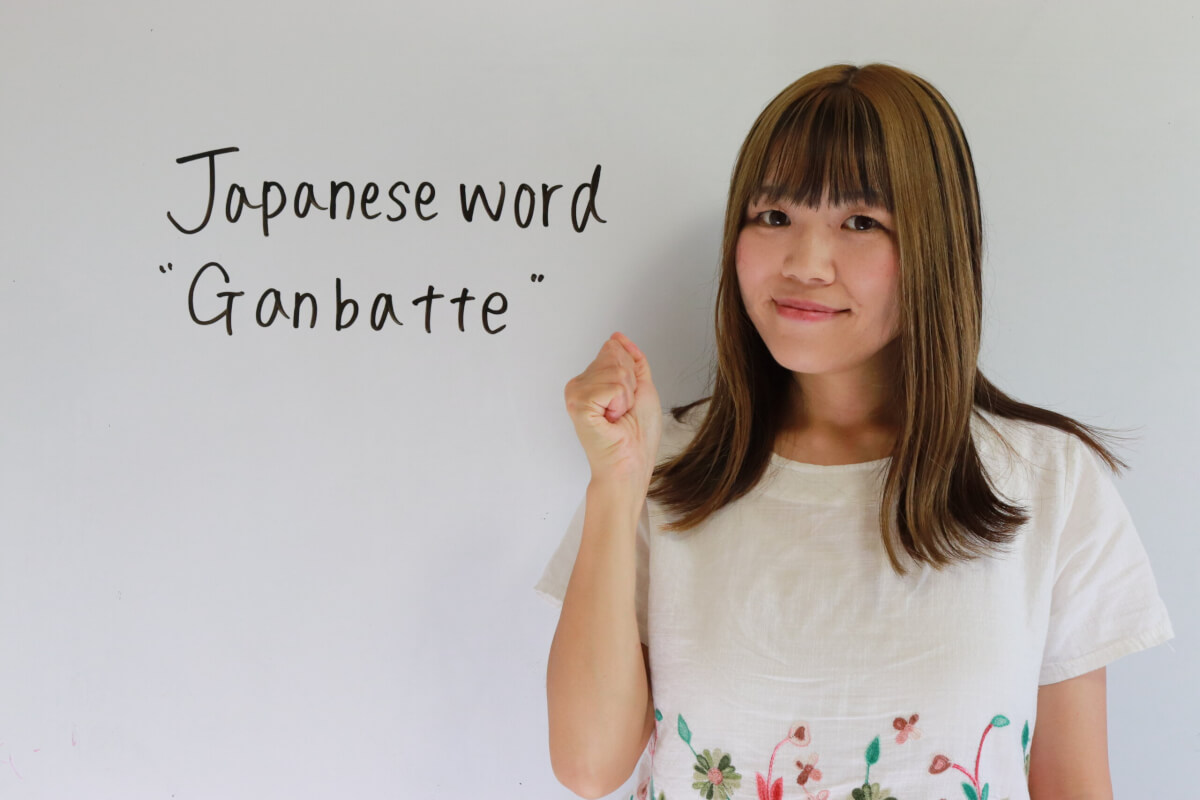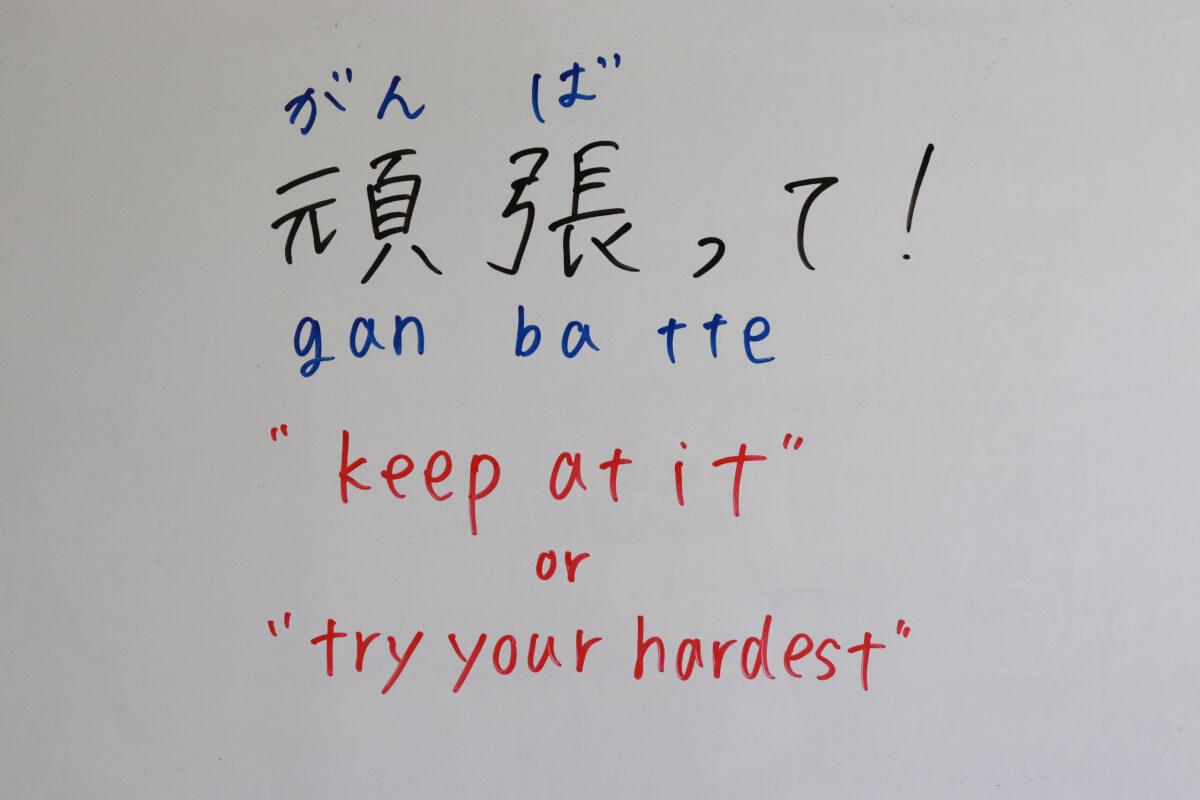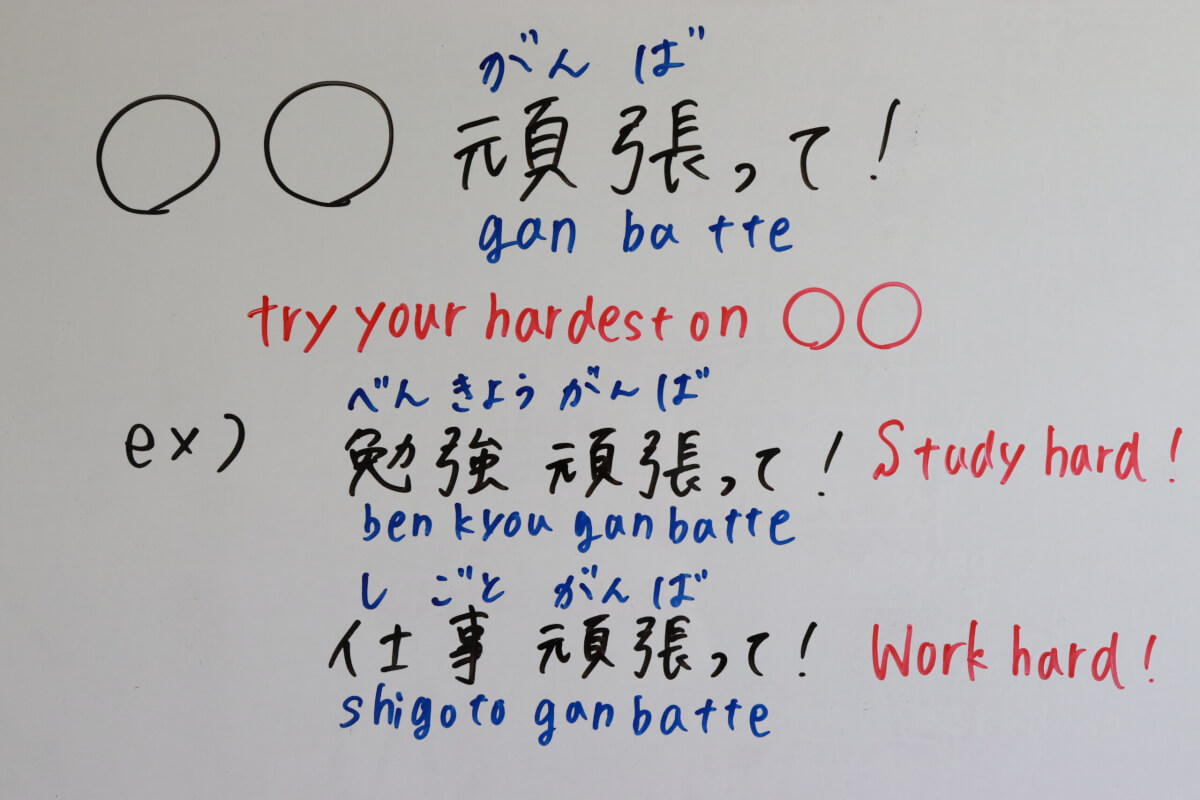- Release Date:
Japanese word Ganbatte

Japanese people often say “頑張(がんば)って /Ganbatte/”. This phrase is frequently seen in both anime and manga. Let us explain what “Ganbatte” means in English.
The meaning of Ganbatte

Words similar to “Ganbatte” are “keep at it,” “do your best,” and “try your hardest. This word "頑張って/ganbatte/" encourages people to do something. It is used for both children and adults.
When do Japanese people use "Ganbatte"?
"Ganbatte” is a word Japanese people have heard since they were babies. For example, when a baby who cannot stand up yet starts to walk, parents say, “Ganbatte! : try your best to walk!".
When a child grows up, parents say, “勉強頑張って /benkyou ganbatte/ study hard,” and when an adult grows up, people around him or her say, “仕事頑張って /shigoto ganbatte/ work hard”. These words are used very often in daily life when he or she needs to push himself or herself a little harder.

〇〇(Noun) + がんばって means "try your hardest on 〇〇."
There is one more expression of it, "頑張ってください /ganbatte kudasai/". If you add "kudasai", it would be very polite. So, Japanese people say "ganbatte" in casual and informal situations, while they say "ganbatte kudasai" in polite situations.
The other expressions of "Ganbatte"
The word “ganbatte” is a verb, so it depends on the verb conjugation.
- 頑張る /ganbaru/
The original verb of “Ganbatte” is “Ganbaru". In other words, the word “ganbaru” is used when you are working on something, while the word “ganbatte” is used to cheer someone else up. For example, before work, you can say, “仕事頑張るぞ /shigoto ganbaru zo/ I'll do my best at work” (zo, is a particle that emphasizes the end of a word).
- 頑張れ /ganbare/
"頑張れ /ganbare/" and "頑張って /ganbatte/" are very similar. Both are used when you want to cheer someone else up. There is little difference between “Ganbare” and “Ganbatte”. However, “Ganbare” is a little more casual and informal. Ganbatte” is a little more polite.
- 頑張らないと /ganbaranaito/
This is what I say to myself. It is used as a reminder to yourself when you have something you need to work on. For example, “次のテスト頑張らないと /tsugi no tesuto ganbaranaito/ I have to do my best for the next exam,” etc. It can be used when you are talking to yourself or to someone else.
- 頑張りましょう /ganbari mashou/
It is used when you do something with someone. For example, “日本語の勉強頑張りましょう /nihongo no benkyou ganbari mashou/ Let's study Japanese hard” is used when working on studying Japanese together. This is a polite way of saying it.
- 頑張ろう /ganbarou/
It is a casual way of saying the above phrase, "頑張りましょう /ganbari mashou/ Let's do our best." It is often used by teachers to their students, friends to friends, family to family, etc. Sometimes “ね /ne/” is added to create a softer atmosphere, "頑張ろうね /ganbarou ne/ ".
Similar words of "Ganbatte"
There are more expressions that can be used depending on the situation and the person you're encouraging.
- ファイト! /faito/
This comes from the English "Fight!" but it doesn't mean "fight" literally. It is used to cheer someone else up or encourage them.
- 応援してるよ! /ou en shiteru yo/
"応援する /ou en suru/ " means to support or cheer someone up. "応援してるよ /ou en shiteru yo/" means "I'm cheering for you!" or "I'm supporting you!"
- 気をつけてね!/ki o tsukete ne/
This is used to tell someone to be careful, but with an encouraging tone, like saying, "Take care while you do your best!"
- 無理しないでね!/muri shinaide ne/
This phrase means "Don't overdo it!" or "Don't push yourself too hard!" and is a gentle way of encouraging someone.
- 負けないで!/makenaide/
This means "Don't lose!" and is used to encourage someone facing a difficult situation, implying "Keep going and don't give up!"
If you know of any similar phrases in anime or manga, please let us know in the comments.
